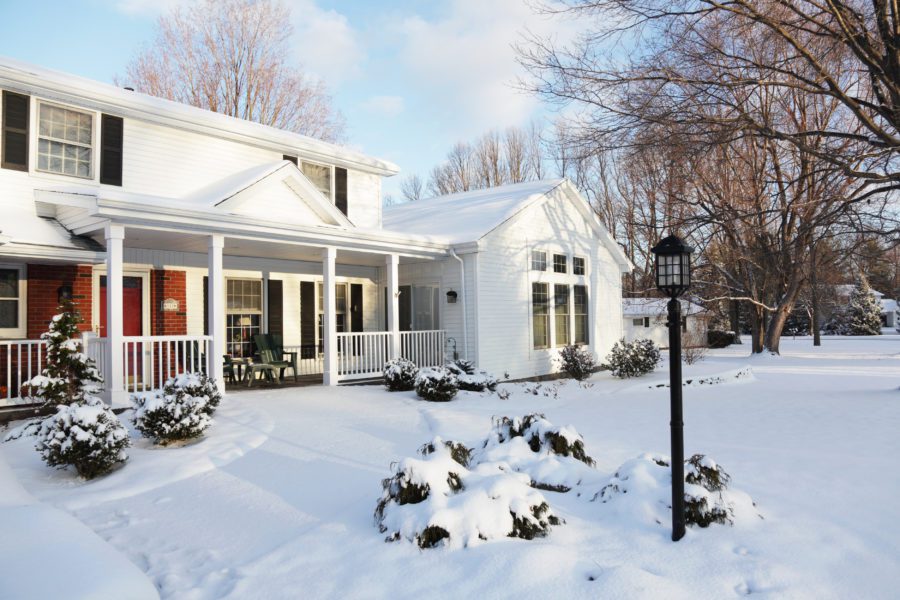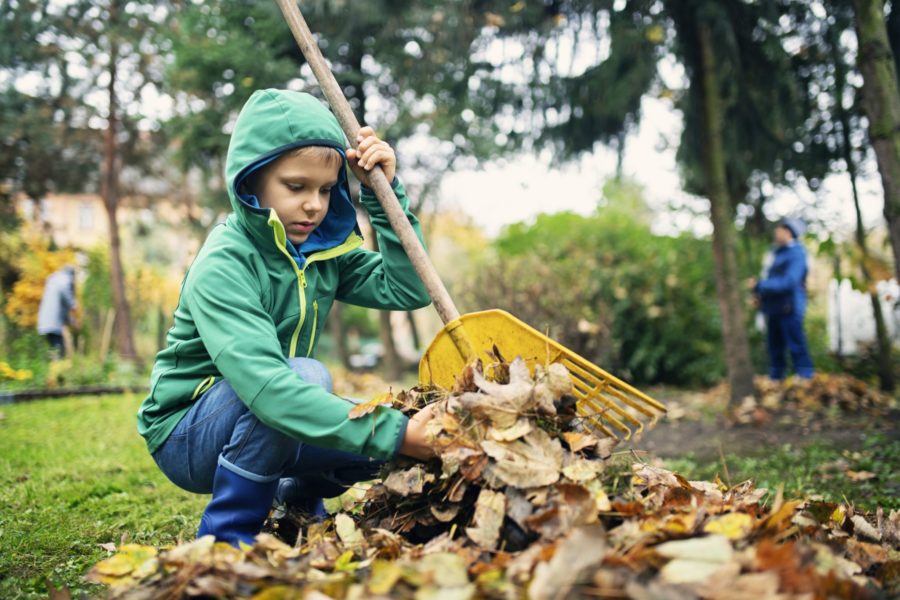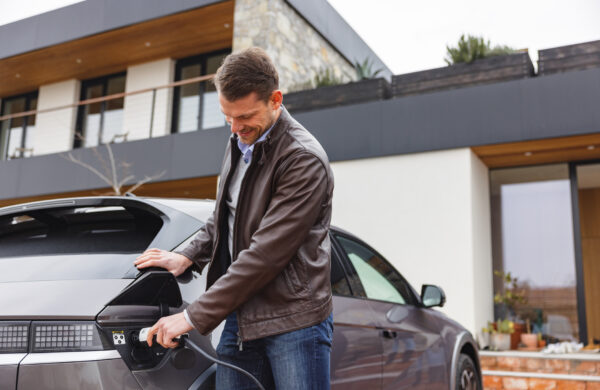Protect your property and family by winterizing your home.
Whether this is your first snowfall or you’re double-checking the precautions you already have in place, this guide can help you winterize your home like a pro.
Prepare for Cold Weather
Properly preparing your home for winter can help save money in the long run by reducing heating costs and minimizing damage in case of a storm.
While winterizing your home can seem like a daunting process, these simple tasks can help protect you all winter long:
Change HVAC Filters
Change heating system filters and create a schedule to stay on track throughout the year. How often you need to replace filters depends on the size of your filter. Typically, a dirty filter should be changed every three to 12 months.
Get Your Heating System Inspected
Get your furnace and thermostat inspected. A professional can help bring attention to anything not working correctly before it gets too cold outside.
Installing a programmable thermostat can help keep your house filled with warm air even when you’re not home. Thermostats with eco-friendly modes can help maintain a consistently warm temperature without skyrocketing your heating bill.
Check Your Ducts
Take the covers off your heating ducts, and shine a flashlight in there. If the dirt is excessive, or you see mold or signs of pests, get them cleaned. If all looks clear, the Environmental Protection Agency (EPA) says you don’t have to clean ducts every year.
Clean Your Gutters
Make sure you clean gutters and downspouts before the weather turns icy. While you’re on the roof, consider adding gutter guards to help keep debris out of your gutters through the winter.
Check the Rest of the Roof
Check your chimney for critters and build-up. Be sure to check your fireplace, too, for animals.
If you have loose or missing shingles, plan on getting those fixed before any rain or snow. Roofs are pretty slippery once the rain starts, so hire an expert for these tasks if possible.
Clean Up Outside
On the exterior of your home, rake away leaves, limbs and other debris that could provide shelter for rodents, insects and other unwanted guests. Make sure foundation vent covers and doors to your crawlspace are intact and tightly sealed.
While outside, bring in or store outdoor furniture.
Don’t Let Cold Air In
Check your exterior doors, windows and walls for gaps, loose connections or failing seals to prevent cold air from creeping in. Address air leaks with caulk or expanding foam, and make repairs as needed. Be sure to clean up debris from around your basement windows so the caulk doesn’t get damaged.
Upgrading to storm windows is another way to prevent cold air from getting into your house. Storm windows can help keep the heat in and ice out while saving on your heating bills.
Replace Weather Stripping
Look at the weather stripping around your doors and windows. Replacing worn and ripped weather stripping can keep your home properly insulated.
Detach Hoses
Detach your garden hoses, drain them and put them away. Also, fasten faucet protectors on your exterior faucets. If possible, you should turn off the water source to your outside faucets that won’t be in use during the winter. This can prevent your outside faucets and hoses from freezing when temperatures drop.
Drain the Sprinklers
Got sprinklers? Turn off and drain your sprinkler system too.
Ceiling Fans
Turn your ceiling fans clockwise. By turning your fans clockwise, hot air will be pushed downward, keeping your house warmer and saving you money.
Does this work?
It’s often best to find out sooner rather than later if certain things in your home are up and running before the cold sets in. Be sure to check the following, or have a professional check to see if these things are working properly:
- Water Heater or Hot Water Tank
- Thermostat
- Carbon Monoxide Detectors
- Snow Blower
- Propane Tank
- Pipe Insulation
With a bit of effort, you can look forward to a snug, uneventful winter. And while you’re winterizing your home, find out if your homeowners’ insurance will protect you during a storm.
Don’t worry about your home, get peace of mind. Contact one of our homeowners’ insurance specialists today.






